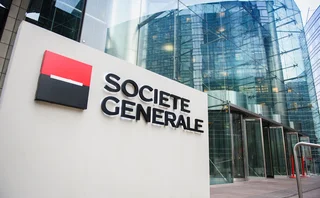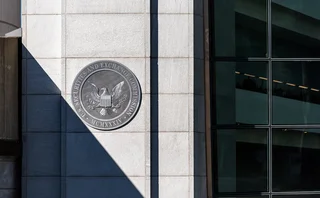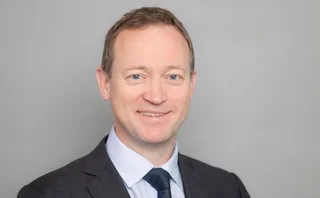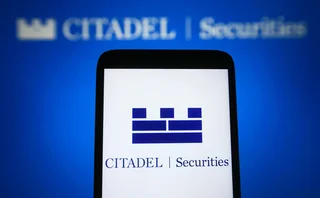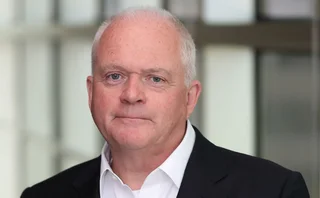
Company profile: DWS diversifies
Fund manager DWS Investments has plans to develop an in-house certificates range, and has recruited several investment banking professionals to help it diversify away from its traditional fund-linked structured products capabilities. Shamillia Sivathambu reports

DWS Investments, the retail fund arm of Deutsche Bank Asset Management, which began developing structured products 14 years ago, is keen to vary its product range. "All of our structured products business is tied to fund-linked products," explains Frankfurt-based Günter Graw, managing director and head of guaranteed fund products at DWS. We do not offer warrants or certificates at the moment. But we have plans to do so."
Acknowledging its limitations, DWS has hired help from the investment banking sector. Stephan Kunze will join DWS at the beginning of October as head of distribution for Europe and Asia-Pacific, Graw says. He joins from ABN Amro, where he assumed a number of roles including head of the European private client group in equity derivatives.
By combining an investment bank's expertise in trading equity derivatives with an asset manager's knowledge of stock-picking, Graw says DWS will plausibly be able to offer investment certificates, and adds that the idea is to "remove the barriers between asset management and investment banking".
Certificates versus fund-linked structures
DWS's structured products business has a total of E23 billion in assets under management, E4 billion of which stems from retail guaranteed funds. "Retail products are where we want to grow. Higher margins mean the earnings potential is greater in the retail market than it is in the institutional market, and certificates will contribute to this growth," Graw notes.
According to Graw, the turnaround time for a fund-linked structure is between one and three months, whereas certificates are more flexible and can cover asset classes that mutual funds are either unable or are not allowed to due to the regulations that govern them.
Retail investors also respond faster than private or institutional clients, who need more convincing when taking up such products, Graw explains.
Despite the E65 billion certificates market's attractions for product producers, there are concerns that certificates are less transparent than mutual funds and that their costs are significantly higher than those of fund-linked structures. "Certificates are not licensed by the regulator, whereas funds are supervised very closely," says Norst Nottmeier, head of hedge funds and securities supervision, for German regulator Bundesanstalt für Finanzdienstleistungsaufsicht (BaFin). And certificates are not guaranteed by the bank in case of default, whereas mutual funds are, he adds.
Despite these concerns, DWS is committed to forging ahead with its plans to offer certificates. "Athough there are some concerns regarding transparency, there is a clear demand for certificates in Germany. So it is best if we are able to offer both fund-linked products and certificates, " Graw says.
Wider distribution
DWS's products can already be purchased through Commerzbank, Citibank and Postbank, and it is keen to develop relationships with independent financial advisers (IFAs) and German savings banks. IFAs are a minority distribution channel in Germany but they have been developing gradually.
DWS has a dedicated sales team to target savings banks. Poor performance of in-house products has encouraged savings banks to look elsewhere, and since the abolition of state guarantees for Landesbanks, under which savings banks operate, Graw says the doors have been opened even further.
Only users who have a paid subscription or are part of a corporate subscription are able to print or copy content.
To access these options, along with all other subscription benefits, please contact info@risk.net or view our subscription options here: http://subscriptions.risk.net/subscribe
You are currently unable to print this content. Please contact info@risk.net to find out more.
You are currently unable to copy this content. Please contact info@risk.net to find out more.
Copyright Infopro Digital Limited. All rights reserved.
As outlined in our terms and conditions, https://www.infopro-digital.com/terms-and-conditions/subscriptions/ (point 2.4), printing is limited to a single copy.
If you would like to purchase additional rights please email info@risk.net
Copyright Infopro Digital Limited. All rights reserved.
You may share this content using our article tools. As outlined in our terms and conditions, https://www.infopro-digital.com/terms-and-conditions/subscriptions/ (clause 2.4), an Authorised User may only make one copy of the materials for their own personal use. You must also comply with the restrictions in clause 2.5.
If you would like to purchase additional rights please email info@risk.net
More on People
SocGen’s head of US Treasury clearing preparations to depart
Bank’s head of product for FX and fixed income prime brokerage for the Americas set to leave later this month
People: You’re fired! US agency rejig, new CROs at ING, StanChart, and more
Latest job changes across the industry
SocGen’s PB clearing head departs for SwapAgent role
Jamie Gavin takes external consulting role for LSEG’s non-cleared swaps platform
Robertson leaves Barclays’ prime services in New York
Head of prime derivatives services unit departs after seven years with the bank for Carbon Point
Citadel Securities hires former Eisler CRO
Pregnell joins market-maker after demise of hedge fund
People: Fishwick hands over BlackRock CRO role, Citi expands Asia FX team, and more
Latest job changes across the industry
Nomura shuffles risk methodology team
Epperlein takes advisory role six months after Japanese bank’s FRTB IMA go-live
Andy Ross leaves StanChart
CurveGlobal veteran confirms his departure as bank’s global head of prime brokerage
